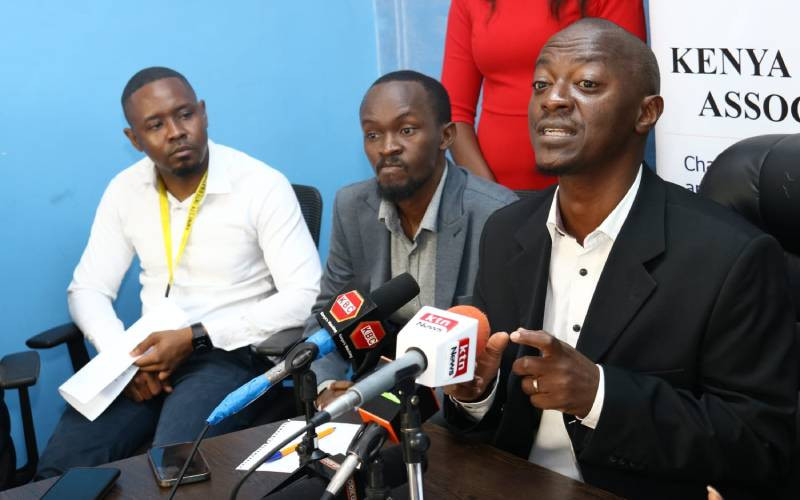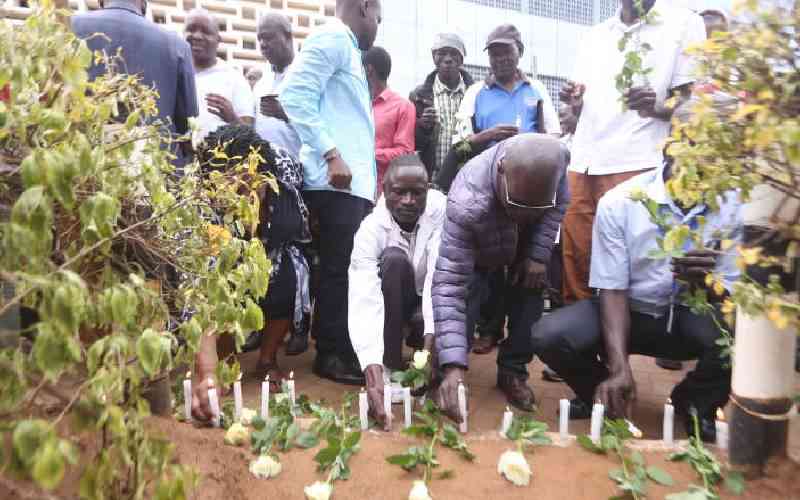As a society, we need to examine our consciences about the deaths of Samantha Pendo in Nyalenda, Kisumu and Moraa Nyarangi in Mathare, Nairobi. Pendo was a six month-old infant. Nyarangi was a nine-year primary school pupil. Both were killed by tax-funded police officers. In effect, both were killed in our name.
Let us forget politics for a second. What kind of society produces men that go about killing children like Pendo and Nyarangi without remorse? Why have we not had enough of public uproar against these two ghastly murders? Why has the police not arrested and began prosecuting the officers that committed these murders? Why did the police feel the need, instead, to defend their own and claim that these children were killed by thugs?
If we accept that the murders of baby Pendo and Nyarangi are okay, then we are implicitly accepting to live and die at the mercy of our police officers and the thugs that use them as killing machines. We must always remember that violence begets violence. In addition, it is simply not the case that the Kenyan State has a complete monopoly on the legitimate use of violence. Ours is still a weak State with a barely coherent handle on its security apparatus. Our command and control is wanting. Our security officers remain exposed to all kinds of compromise. And so there might come a time when communities in certain parts of Kenya resolve to create and maintain their own means of protection from State violence. This is not a gratuitously alarmist claim. If the State continues to kill and maim with wanton abandon, Kenyans will have every right to create the means of protecting themselves. Kenya exists for the sake of Kenyans, and not the other way around.
The agreement to grant the central State the exclusive right to legitimate use of violence is a conditional agreement. The State must only use the powers we grant it legitimately. And so when the State goes rogue, and starts killing the very people that entrust it with power, then Kenyans of goodwill have every right to take this privilege away. Recent events are cause for us to consider giving our 47 counties a more robust role in maintaining security and order. There is nothing magical in having a unified national police service. Others have fragmented police services and the force is political accountable to the people. We can do the same in Kenya. The police should not be seen as a mere instrument of rule. There is a reason we changed the name from Kenya Police Force to Kenya Police Service. The police exist to serve us. They derive their power from us, and maintain it on a conditional basis. We have every right to withdraw those powers when the police fail us. And I am afraid to say that in the last week we have seen what is sufficient cause for us to reconsider the need for one unified police service. Let us break up the police force. If not into 47 units, then somewhere between 8 and 47 units.
- The writer is an Assistant Professor at Georgetown University
 The Standard Group Plc is a
multi-media organization with investments in media platforms spanning newspaper
print operations, television, radio broadcasting, digital and online services. The
Standard Group is recognized as a leading multi-media house in Kenya with a key
influence in matters of national and international interest.
The Standard Group Plc is a
multi-media organization with investments in media platforms spanning newspaper
print operations, television, radio broadcasting, digital and online services. The
Standard Group is recognized as a leading multi-media house in Kenya with a key
influence in matters of national and international interest.
 The Standard Group Plc is a
multi-media organization with investments in media platforms spanning newspaper
print operations, television, radio broadcasting, digital and online services. The
Standard Group is recognized as a leading multi-media house in Kenya with a key
influence in matters of national and international interest.
The Standard Group Plc is a
multi-media organization with investments in media platforms spanning newspaper
print operations, television, radio broadcasting, digital and online services. The
Standard Group is recognized as a leading multi-media house in Kenya with a key
influence in matters of national and international interest.








